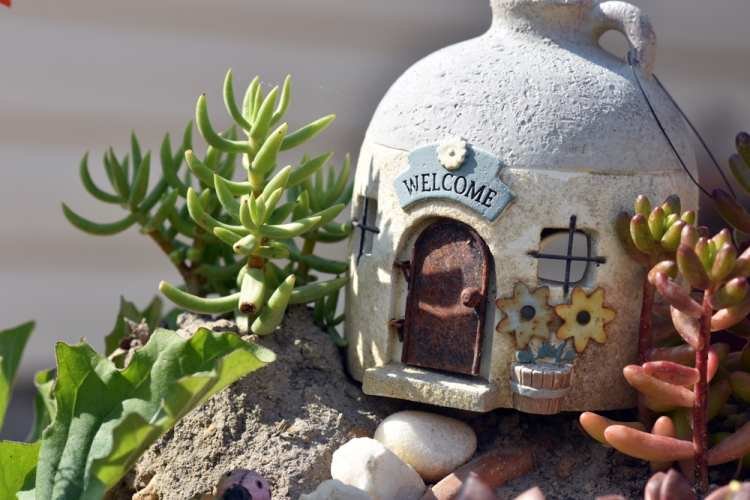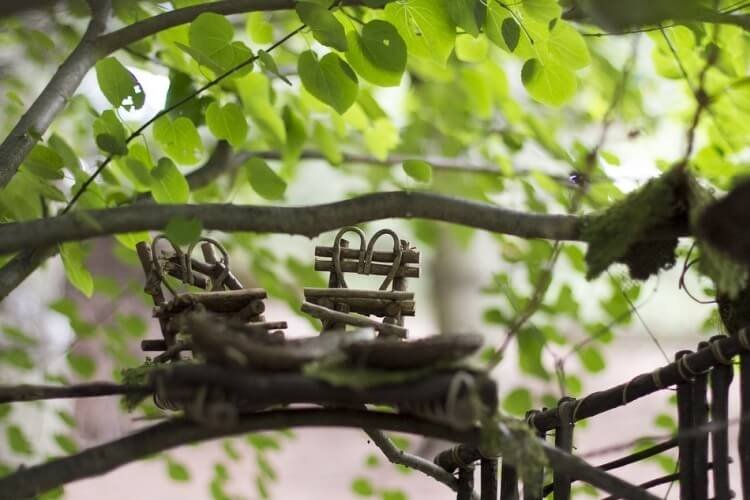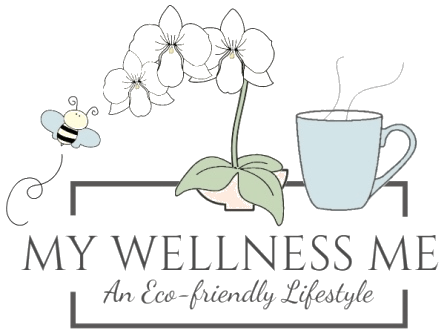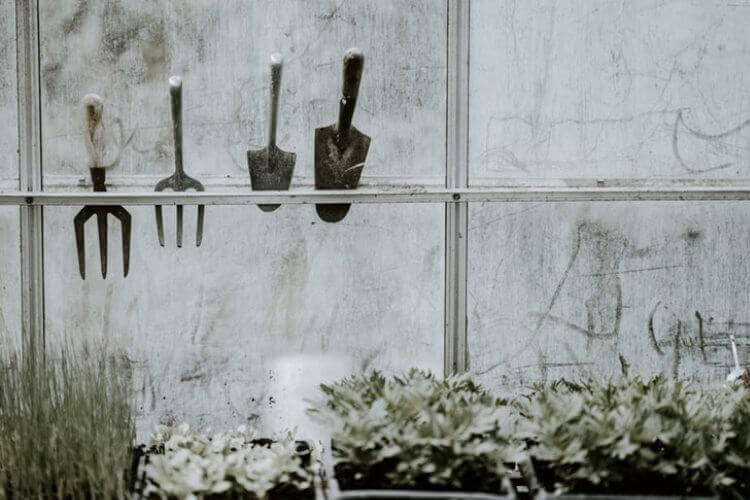Garden ecotherapy is a great way to tackle climate change. Its other benefits ain’t half bad either.
We are so used to seeking out panaceas in bottles and pills that we turn our backs dismissively on nature’s offerings.
A host of ailments, particularly mental and emotional, can be successfully combated through outdoor activities. Or, to be more specific and since we love our labels, “garden ecotherapy.”
What is garden ecotherapy?
Garden ecotherapy (also known as horticulture therapy) is the engagement of an individual in garden-based activities under the trained eye of a therapist. It’s essentially mostly gardening but with someone to ensure that you do it the right way so you get the most out of it.
The activities, which may be active or passive, can lead to numerous benefits. We’re talking heart diseases and sleep disorder to depression and substance abuse.
Social prescribing
If you are little iffy about this, then I can sympathize with you. After all, every day brings with it a “new” way to better our lives. But, rest assured, garden ecotherapy in no new-age mumbo jumbo.
Medical professionals have started prescribing it as a treatment to people suffering from anxiety and depression. It is clear to even them that our relationship with soil, plants and trees can truly work wonders for the mind, body and spirit.
In social prescribing, doctors refer their patients to therapists who can help them through the different states of garden ecotherapy. The treatment commonly involves starting a garden or being active in a community garden.
Horticulture therapists
Now these therapists whom the good doctor assigns to help us are not random picks. They are people with special training who are well versed in areas like horticulture, social care, and occupational therapy, among others.
A horticultural therapist works with individuals from a wide spectrum of the society, who can benefit from garden ecotherapy. Patients include grizzled veterans, little children, the elderly, and others who are trying to get back on track after suffering addiction and mental health problems.
What is the difference between a therapeutic garden and a regular garden?
The one stark difference between the two is the presence of a therapist. So beware, you will be called out for your mistakes…for your own good.
Your guide is not there to impose their ideas upon you but, in helping you take care of plants the proper way, teaches you to become better caretakers.
The landscaping is also more elaborate with therapeutic gardens and come with features that most loveable home gardens may lack. So, you get sensory, healing, and edible gardens, and those that cater to dementia patients.
They are designed with a judicious selection of colors, fragrance, sounds, and even taste. All this is done to elicit positive responses from people with mental and physical health problems.
As for the classes, they teach a range of gardening techniques and may even teach vocations and also sell produce.
At the heart of therapeutic gardens, and garden ecotherapy in general, is the idea of giving back to nature through which you can also achieve personal growth. Without that connection, the exercise is futile.
A degree of commitment from the client is also necessary. Garden ecotherapy is not a get in and get out exercise.
If you are prepared to be in it for the long haul then you can reap its full benefits. It’s only when you give to nature that it gives back.
And it gives back a lot.
Labyrinths in garden ecotherapy
Labyrinth gardens are also quite popular for spiritual pace and contemplation, been that way since ancient times in fact. While most modern gardens are designed in the traditional mazy circle, you can find them in different shapes as well.
These serpentine structures allow you to focus and relax, and meditate when you decide to take a break from socializing.
Garden ecotherapy activities
While garden ecotherapy primarily centers on working with the soil and plants, it does not exclusively revolve around that. There are other fun and invigorating activities where you can take part.
Let’s look at some of them.
Fresh flower arranging
Apart from unleashing creativity, this activity also channels your focus. Did you know that in ancient Japan, war generals spent their time dedicatedly practicing Ikebana, the Japanese art of flower arrangement? The thought process was that it helped them make clear decisions in battle.
Flower pressing
The best way to preserve flowers that have a special or emotional significance to you is to press them. Or just do it for the sake of art. It can really brighten up a room or mood.
Topiary
Get a pair of shears and decorate your garden in different shapes.
Potpourri
These not only provide great fragrance but add a touch of art to your living space. Anything that has such a positive effective on your smell and sight must be tried.
Creating a nature journal
Document what you see around the garden. Keeping a journal has been known to reduce stress and even physical ailments like asthma.
How about recording the different types of butterflies that visit your garden or keep a track of edible flowers that you can use in your kitchen? Or create a collage of images of your favorite flowers?
Making wreaths
The great Caesar used a laurel wreath to cover the bald patch on his head. Whether you want to follow this fashion statement is completely up to you.
However, where wreaths are more or less guaranteed to look great is as décor around the house. And they are not the most difficult to make; all it requires is a few plant cuttings.
Preserving herbs
We don’t always use up all the fresh herb we collect. The surplus can be frozen dried or made into a paste. You can also get a little creative and make your own herb butter, herb honey or herbal tea.
Here are some delicious apple tea recipes with herbs you might want to try.
Writing
When your health does not permit you to work outdoors or you take a day off, just sit in the garden and write. Or you can just stare at nature and write later; it worked for William Wordsworth and Walt Whitman.
Check out these beautiful passages and quotes on green living and nature for inspiration.
Gift pots
Plants in pots are wholesome gifts that the recipient can enjoy for many years. You can personalize the pots by painting them.
Fairy gardens. Fairy gardens
The term is so gorgeous that I had to type it twice. What better way to let your imagination fly than to indulge in such a project.


Other activities: Terrariums, medicinal herb illustrations
Let’s look at the benefits of garden ecotherapy
A lot has been covered about the advantages of gardening and how the activity can reduce stress, increase happiness and help live a longer life.
Ikigai – The formula for happiness and long life
Ikigai is the Japanese concept that focuses on finding an activity that you are passionate about and provides you a sense of fulfilment. It originated in the town of Okinawa where citizens love their gardening. It is no wonder that the town has the most number of centenarians on earth.
What’s the elixir?
It could be Okinawa’s indigenous vegetables, especially sweet potatoes and cucumbers, which are rich in minerals. This theory also gives credence to the idea of active gardeners who eat local produce living healthier lives, so more reason to endorse local farming.
Taking care of plants is also a great way to understand nature and other living beings with which we share the world. This way, we learn to appreciate life more.
Besides, there is a certain rhythm to the activity of gardening that propagates creativity. Just the simple act of trimming or weeding can cause the mind to relax and think more clearly.
Delay the grim reaper with garden ecotherapy
This theory of connecting to nature and living a longer life has been backed by a Harvard study. The research showed a significantly lower rate of cancer, respiratory and kidney mortality in women who lived in a lush green environment.
The equation is simple – greener the surrounds, better the chances of a long life.
Green spaces are also an invitation to walk or cycle and creative activities surrounding the garden leads to less stress and a longer life.
Yeah, not much secret there.
Play in the dirt to improve gut health
Oh yes, dirt is good.
It has been documented that children exposed to dirt growing up have a sturdier constitution that those who are not. They tend to have better immune systems and do not suffer as much from conditions like eczema and allergies.
We tend to associate it with germs but the same harmful bacteria found in garden soil are beneficial (in small amounts that is) to maintaining and restoring our gut health.
Garden ecotherapy can help with dementia and other mental illnesses
Patients suffering from anxiety and depression are given plants to take care of, which are later planted in the bigger communal garden. There they indulge in activity with others suffering from similar ailments and form social bonds.
A research in Australia revealed that people in their 60s who were active gardeners were 36 percent less likely to suffer from dementia that those who were not.
Garden ecotherapy also keeps the red mist in check.
If you have the proclivity to flying off the handle, fall in love with the soil.
A study in the UK reported that dementia patients were 19 percent less likely to be violent near gardens than individuals who did not visit them.
Even those recovering from surgery can benefit. A study has revealed that patients who look at natural surroundings from their hospital windows tend to recover quicker than others who look at walls.
Moreover, in another study, the moods of individuals diagnosed with clinical depression visibly lifted after three months catering to gardens.
The same applies to children in juvenile rehabilitation who are better at controlling their behavior when gardening.
… and it benefits spiritual health
Do not underestimate the power of nature’s sounds. Spending time outdoors can lead to greater spiritual health gains.
How does this work?
Listening to the various sounds of the outdoors causes the brain to react in a way it would do during daydreaming.
Artificial sounds create a different focus, similar to one that takes place when you are anxious or depressed.
With garden ecotherapy, you can find ways to use your knowledge and skills. And who knows you might discover things about yourself that will help you become a better person.
Change is possible, not only in the soil we tend to but ourselves too.
It is nature’s gym
Yes, garden ecotherapy is a brilliant form of exercise, even minus the dumbbells and treadmills.
Don’t be fooled. Those hauling equipment are no feather dusters. Plus, lifting soil, weeding, raking can be quite a workout, especially if you are tending to a big area.
One hour of planting flowers and pulling weeds can burn up to 400 calories.
Over time your physical coordination improves. Feel-good hormones such as serotonin and dopamine rise and stress hormones like cortisol are lowered. We all know how GOOD that feels!
Here are 13 ways for you to create an eco-friendly fitness routine.
Vitamin D
Gardening exposes you to Vitamin D from the sun, which helps to fight heart diseases and cancer.
It’s not a new trend
Guess what, garden ecotherapy is no modern concept.
It was incorporated to help military personnel suffering from PTSD following their service in the Iraqi War. The main objective of the program was to connect veterans to nature in an effort to bring about positive feelings and confidence so they could go back to living a normal life.
This treatment was similarly used as far back as the 40s and 50s to rehabilitate World War II veterans.
What’s the reason for the success?
Look at it metaphorically. The first sight of a seedling that has freshly burst through the soil is evidence that results are possible. Later, as the plant grows upon nurturing, so does the self-confidence and self-esteem of the individual taking care of it.
Marilyn Monroe was big into horticulture; who knows if this helped to take her mind off the intense scrutiny she faced in her life. On the morning of her death, she had a Begonia basket, Mexican lime tree, Valencia oranges, and tuberose plants delivered to her place.
Become a gardener
If there is no horticulture therapist to assist you, don’t worry. You can start enjoying the benefits of gardening and other related activities on your own.
You can begin small, such as a mini indoor herb garden on the window sill.
Maybe you have the brownest thumb in God’s green earth. Maybe you’ll waste some money. Or maybe you’ll feel like pulling clumps of hair from your head in despair screaming blue murder.
The good news is:
If you keep at it the results will knock on your door in time.
Are you a gardener? Do you indulge in activities around the garden? What’s your opinion on the concept of garden ecotherapy? Let us know in the comments.


8 comments
I absolutely LOVE this post! As an entirely self-taught gardener, I’m a huge advocate of getting outside in the fresh air and getting my hands muddy. The thrill of seeing something grow that you’ve raised from a seed NEVER gets old. And all the benefits you’ve outlined above are spot on. A small healing garden is on my wishlist, we have enough space, and I love the idea of creating something that’s good for our health as well as pretty to look at. Fab post, thank you for sharing! Lisa
Thanks Lisa! Gardening will always endure, and I love the fact that you are self-taught.
Best of luck on your healing garden 🙂
Wow this is a great post! I’m rather limited when it comes to my gardening skills, but I do feel a sense of achievement every time I’ve grown something successful, even if it is something that is really simple to grow. I feel like I’ve learnt a lot from this post, and definitely will be making use of it in the future!
Thanks Izzie! I hear you. I also feel a sense of achievement regardless of what I grow.
I have always found gardening therapeutic, I never knew it was an actually therapy though. Was really interesting reading about it. I want to make some sort of fairy garden with the kids this spring ?
Thanks. The best things about fairy gardens is that there’s no creative limit to what you can do. I love them!
This is such a great post. I’ve never really heard of garden ecotherapy before so I enjoyed learning more about it! Thanks for sharing all this information.
Glad you found this post useful. I guess gardening comes with so many benefits that it is no surprise healing is one of them 🙂
Comments are closed.